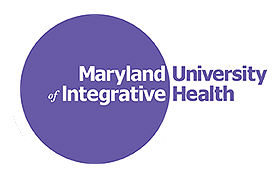Two New Initiatives in Integrative Education
March 17, 2016
by John Weeks, Publisher/Editor of The Integrator Blog News and Reports
A bell-weather for the future of integrative health and medicine is change in content or programs at the top schools in the integrative health arena. Many recent advances are from institutions that originally educated only one type of practitioner and then expanded to become multidisciplinary academic centers. Two of these leaders in integrative education have recently announced some important developments to their programs – the first was formerly an acupuncture college, the second was originally a naturopathic college. Maryland University of Integrative Health Inks Deal with Hopkins Hospital In late February, the Maryland University of Integrative Health (MUIH) announced a new collaboration with Johns Hopkins Medicine member Howard County General Hospital (pictured right). Under the agreement, MUIH students “will now be able to offer integrative clinical services to patients in the hospital seeking treatment.” Frank Vitale, CEO of MUIH, explains: “Partnering with our community hospital as we begin this exciting relationship with Johns Hopkins Medicine will be the perfect way for us to meaningfully touch the lives of our county’s citizens.” Vitale speaks to a particular value for any institution that is physically separate from regular medical education and practice. The collaboration “allows MUIH clinical interns and faculty to be contributing members of an interprofessional healthcare team.” They anticipate that special value will be in offering non-pharmacologic approaches. The program will begin with students in MUIH’s Master of Science in Yoga Therapy program working “at the bedside with patients who are recovering from surgery.” Early focus for the interns will be to “provide breathing and mindfulness techniques to specifically help patients deal with pain.”
In late February, the Maryland University of Integrative Health (MUIH) announced a new collaboration with Johns Hopkins Medicine member Howard County General Hospital (pictured right). Under the agreement, MUIH students “will now be able to offer integrative clinical services to patients in the hospital seeking treatment.” Frank Vitale, CEO of MUIH, explains: “Partnering with our community hospital as we begin this exciting relationship with Johns Hopkins Medicine will be the perfect way for us to meaningfully touch the lives of our county’s citizens.” Vitale speaks to a particular value for any institution that is physically separate from regular medical education and practice. The collaboration “allows MUIH clinical interns and faculty to be contributing members of an interprofessional healthcare team.” They anticipate that special value will be in offering non-pharmacologic approaches. The program will begin with students in MUIH’s Master of Science in Yoga Therapy program working “at the bedside with patients who are recovering from surgery.” Early focus for the interns will be to “provide breathing and mindfulness techniques to specifically help patients deal with pain.”  The new five-year agreement with the Howard County General Hospital (HCGH) began on February 1, 2016. The press release announcing the collaboration concludes by saying that the “MUIH looks forward to working closely with HCGH to create a successful and rewarding clinical, educational, and collaborative experiences for students, faculty, health providers, and individuals seeking treatment at the hospital.” Comment: A group of 75 integrative health and medicine educators from 12 professions met for 4 days in June 2005 as the National Education Dialogue to Advance Integrated Care: Creating Common Ground. At the end of the meeting, they declared a set of 9 “Common Ground Priorities.” The first of these priorities was to “facilitate development of inter-institutional relationships and geographically-based groupings of conventional and CAM institutions and disciplines in diverse regions. Promote student and faculty exchanges, create new clinical opportunities, facilitate integrated post-graduate and residency programs, and provide opportunities for students to audit classes and share library privileges.” This is a classic example, from an institution that is big on collaboration, as noted here. It will be great when Hopkins and Howard warm up and bring in MUIH’s acupuncturists, nutritionists, and others. (Alignment of interest note: I consult with MUIH.) Institute at National College of Natural Medicine to Focus on Well-Being of the Aging
The new five-year agreement with the Howard County General Hospital (HCGH) began on February 1, 2016. The press release announcing the collaboration concludes by saying that the “MUIH looks forward to working closely with HCGH to create a successful and rewarding clinical, educational, and collaborative experiences for students, faculty, health providers, and individuals seeking treatment at the hospital.” Comment: A group of 75 integrative health and medicine educators from 12 professions met for 4 days in June 2005 as the National Education Dialogue to Advance Integrated Care: Creating Common Ground. At the end of the meeting, they declared a set of 9 “Common Ground Priorities.” The first of these priorities was to “facilitate development of inter-institutional relationships and geographically-based groupings of conventional and CAM institutions and disciplines in diverse regions. Promote student and faculty exchanges, create new clinical opportunities, facilitate integrated post-graduate and residency programs, and provide opportunities for students to audit classes and share library privileges.” This is a classic example, from an institution that is big on collaboration, as noted here. It will be great when Hopkins and Howard warm up and bring in MUIH’s acupuncturists, nutritionists, and others. (Alignment of interest note: I consult with MUIH.) Institute at National College of Natural Medicine to Focus on Well-Being of the Aging  On March 4, 2016, Portland, Oregon-based National College of Natural Medicine (NCNM) announced the formation the new Age Wise Institute. This new institute aims to improve the lives of senior citizens through fostering positive lifestyle choices in seniors. The focus is on “early detection, prevention, treatment and reversal of age-related dysfunction, disorders and diseases.”
On March 4, 2016, Portland, Oregon-based National College of Natural Medicine (NCNM) announced the formation the new Age Wise Institute. This new institute aims to improve the lives of senior citizens through fostering positive lifestyle choices in seniors. The focus is on “early detection, prevention, treatment and reversal of age-related dysfunction, disorders and diseases.”  According to President of the NCNM, David Schleich, PhD, “In America, aging is often viewed as a disease, when in fact this natural process can be supported through proper nutrition, age-focused healthcare and supportive programs that promote staying active and connected to the community.” Anticipated activities at the institute include the development of new curricula for the NCNM’s naturopathic medical students, sponsoring related symposia, hands-on classes, and a research component. The program will be led by gerontologist Amy Henderson (pictured left). She remarks: “In a country as wealthy as the United States, the healthcare and living conditions available for most of our seniors is shameful. Seniors are held in high regard in many less advanced cultures. NCNM wants to begin helping change the paradigm, to help create a culture in which aging is a story of life, health and dignity.” Founded in 1956 and the “mothership” of the naturopathic medicine renaissance, the NCNM now also promotes integrative education via its programs in Chinese medicine, nutrition, global health, integrative mental health and integrative medicine research. The Age Wise Institute joins three other such institutes: Food as Medicine, Traditional Roots, and Women in Balance. The college also boasts the Helfgott Research Institute, dedicated to natural medicine scientific research and education. Comment: Even while we may be engaging efforts to hold off the march of time, how many of us are simultaneously repelled by the “anti-aging” name of that movement. It speaks a deep philosophic misalignment for many, and certainly for those nourished by the roots of naturopathic medicine. It’s nice to see the release speaking not just prevention but to “reversal” of age-related dysfunction. Here’s hoping the NCNM initiative will flourish.
According to President of the NCNM, David Schleich, PhD, “In America, aging is often viewed as a disease, when in fact this natural process can be supported through proper nutrition, age-focused healthcare and supportive programs that promote staying active and connected to the community.” Anticipated activities at the institute include the development of new curricula for the NCNM’s naturopathic medical students, sponsoring related symposia, hands-on classes, and a research component. The program will be led by gerontologist Amy Henderson (pictured left). She remarks: “In a country as wealthy as the United States, the healthcare and living conditions available for most of our seniors is shameful. Seniors are held in high regard in many less advanced cultures. NCNM wants to begin helping change the paradigm, to help create a culture in which aging is a story of life, health and dignity.” Founded in 1956 and the “mothership” of the naturopathic medicine renaissance, the NCNM now also promotes integrative education via its programs in Chinese medicine, nutrition, global health, integrative mental health and integrative medicine research. The Age Wise Institute joins three other such institutes: Food as Medicine, Traditional Roots, and Women in Balance. The college also boasts the Helfgott Research Institute, dedicated to natural medicine scientific research and education. Comment: Even while we may be engaging efforts to hold off the march of time, how many of us are simultaneously repelled by the “anti-aging” name of that movement. It speaks a deep philosophic misalignment for many, and certainly for those nourished by the roots of naturopathic medicine. It’s nice to see the release speaking not just prevention but to “reversal” of age-related dysfunction. Here’s hoping the NCNM initiative will flourish.



















SHARE